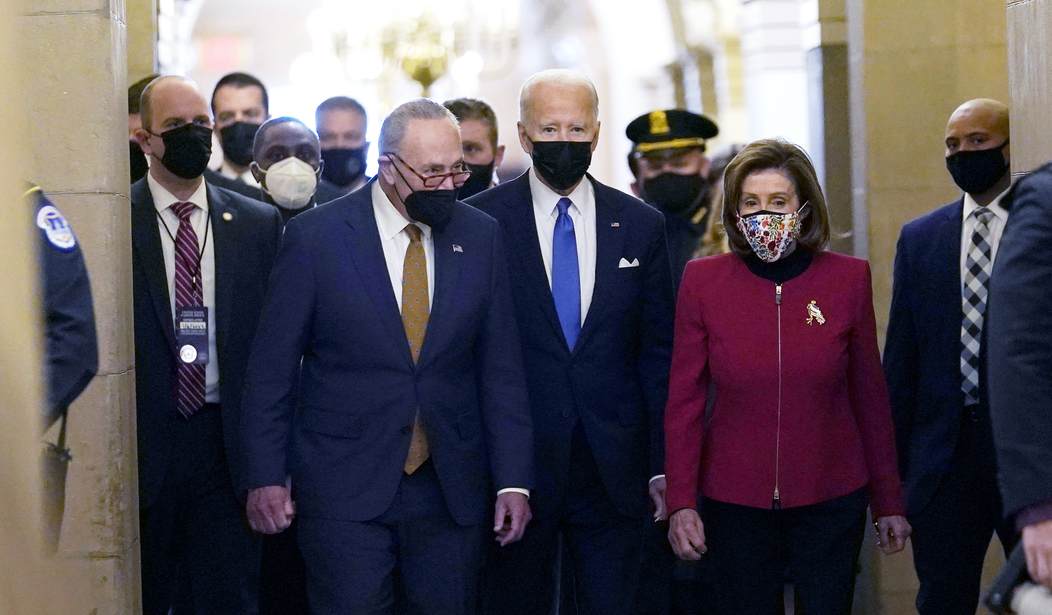A majority of recent polls show the Republican Party with a lead in the generic congressional ballot. Politico has the GOP up two points, while Monmouth has them up eight points. The latest Harris poll puts them at +6.
Since mid-November, the Republican Party has had a lead in the 2022 generic congressional vote RealClearPolitics average, which spells big trouble for the Democratic Party.
Let’s look at some history:
In 2020, the RCP average was +6.8 for the Dems. The final result was Dems +3.1.
In 2018, the RCP average was +7.3 for the Dems. The final result was Dems +8.4.
In 2016, the RCP average was +0.6 for the Dems. The final result was GOP +1.1.
In 2014, the RCP average was +2.4 for the GOP. The final result was GOP +5.7.
In 2012, the RCP average was +0.2 for the GOP. The final result was Dems +1.2.
Over the past ten years, more often than not, Republicans outperformed the generic poll average. The two exceptions were in 2018 when Trump was struggling in the polls and not on the ballot and in 2012 when Obama was relatively popular and running for reelection. In 2022, Democrats head into the midterms with a country struggling with high gas prices, inflation, and an unpopular Democrat president.
Democrat strategist James Carville argues that Democrats need to talk policy to win over Americans. “If you show them substantial policies that improve people’s lives and you run on that like we did in 2018, you will be successful.”
The problem with this theory is that if Democrats actually talk about their policy objectives, they’ll lose. They know it, which is why they often prefer not to talk about their agenda until after elections are over.
For example, it’s no secret that Democrats support amnesty for illegal immigrants. There’s a reason there’s a border crisis right now. It’s intentional. Despite repeatedly calling for amnesty in 2021, the Democratic Congressional Campaign Committee is recommending members of their party running for reelection deny their support of open borders and amnesty until after the midterms. Similarly, Democrats are encouraged to respond to attacks about their support of defunding the police and critical race theory, otherwise “they risk losing significant ground to Republicans in the midterms.”
Yet other times, we’re constantly being told that the Democrats’ agenda is popular. For example, how many times has White House Press Secretary Jen Psaki insisted over the past few months that Americans overwhelmingly support Joe Biden’s Build Back Better agenda?
Similarly, we’ve seen Democrats gradually retreat from their support of COVID restrictions in an apparent concession that it’s political suicide not to.
This feels like a pattern, doesn’t it? Rather than be honest about their agenda, they resort to deception to make themselves more palatable to the American voters. Remember how Joe Biden refused to declare his position on court-packing until after the 2020 election?
“You’ll know my opinion on court-packing the minute the election is over,” Biden said in Oct. 2020. It was his way of saying, “If I win, I’m for it; if I don’t win, I’m not,” but it was nevertheless the same kind of deception Democrats pull every election year: keep the real agenda under wraps until we’ve won.
In other words, they need false advertising to win. The real question is, why do voters fall for it?










